Posted on 3/28/2025
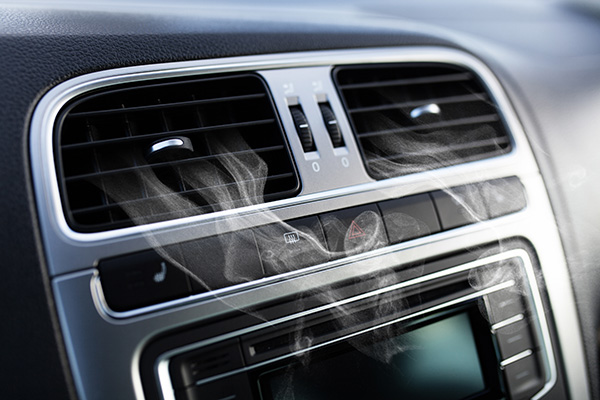
If your car smells like exhaust inside the cabin or you’ve been feeling dizzy, tired, or nauseous after driving, don’t ignore it—a leaking exhaust can absolutely make you sick. Exhaust fumes contain gases like carbon monoxide that are dangerous to breathe, especially in enclosed spaces like your vehicle. Even small exhaust leaks can lead to big problems if they allow fumes to enter the cabin. It’s not just about noise or emissions—it’s a real safety issue that needs immediate attention. How Exhaust Leaks Let Fumes Inside the Car Your exhaust system is designed to move harmful gases away from the engine and out the back of the vehicle. It’s made up of several parts, including the exhaust manifold, catalytic converter, muffler, and piping that routes everything underneath the car. If there’s a crack, hole, or loose connection anywhere in that system—especially before the muffler or near the firewall—those ga ... read more
Posted on 2/28/2025
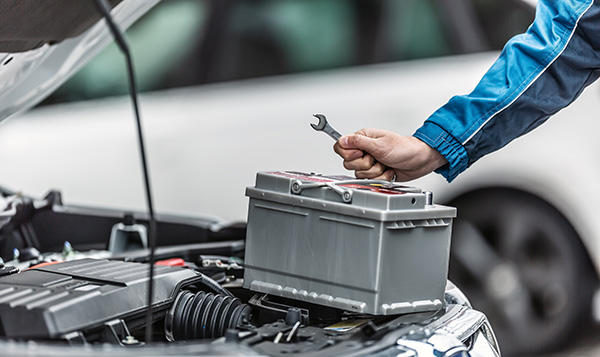
Few things are more frustrating than trying to start your car, only to hear nothing but a clicking sound—or worse, complete silence. A dead battery can throw off your entire day, but knowing why it happens can help you avoid getting stranded. While car batteries are built to last, certain conditions can drain their power faster than expected. So, what’s causing your battery to fail, and how can you prevent it? 1. Leaving Lights or Electronics On One of the most common reasons for a dead battery is accidentally leaving the headlights, interior lights, or other electronics on after turning off the car. Many modern vehicles have automatic shutoff features, but older models and certain manual settings may require you to turn them off manually. Even a small interior light left on overnight can drain the battery enough to prevent your car from starting the next day. 2. Frequent Short Trips Car batteries recharge while the engine is running, b ... read more
Posted on 1/31/2025

Hitting the road with your furry companion can be an unforgettable experience, but without proper planning, it can also turn into a stressful one. Pets have their own needs when traveling, and making sure they’re safe, comfortable, and entertained is essential for a successful road trip. If you're preparing for an adventure, these ten tips will help make your journey with your pet a smooth and enjoyable one. 1. Schedule a Pre-Trip Vet Check Before heading out, take your pet for a vet visit to ensure they’re in good health for travel. Ask about any vaccinations needed for your destination and discuss possible motion sickness solutions. If your pet isn’t already microchipped, this is the perfect time to get it done in case they get lost. 2. Pack a Pet Travel Kit Just like you pack your essentials, your pet needs a bag, too. Include food, water, bowls, a leash, waste bags, medications, a blanket, favorite toys, and a first-aid ki ... read more
Posted on 12/21/2024

Towing a trailer is a handy skill, whether you're moving equipment, taking your camper on an adventure, or helping a friend move. But it’s not as simple as hitching up and hitting the road. If you're a pickup owner, ensuring that your truck is ready and you know the basics of towing is essential for safety and efficiency. Here are eight must-know tips to make your towing experience stress-free. 1. Know Your Truck’s Towing Capacity Before anything else, verify your truck’s towing capacity. Overloading your vehicle can lead to significant wear and tear, not to mention safety risks. Check your owner's manual for the maximum weight your truck can tow, including the trailer and its cargo. Ignoring this critical detail can cause brake failure, overheating, or damage to your suspension. Always stay within your truck's limits to ensure a safe towing experien ... read more
Posted on 11/29/2024

The holiday season is all about spreading cheer, and your car doesn’t have to miss out on the festivities. Whether you’re gearing up for a family road trip, driving to a holiday party, or simply wanting to embrace the Christmas spirit, decking out your car with festive accessories can turn your ride into a mobile celebration. But with so many options out there, which ones are truly worth your time? Let’s explore some fun and practical Christmas-themed car accessories to bring the holiday vibe to your vehicle. Why Deck Out Your Car for the Holidays Before diving into the options, let’s address the “why.” Adding Christmas-themed accessories to your car isn’t just for fun—it’s a way to embrace the holiday magic. For families, it can make outings more exciting for kids. For the solo driver, it adds a touch of personal joy to daily commutes. And if you’re part of a holiday parade or light show, a festive car is a ... read more
Posted on 10/31/2024

When it comes to pickup trucks, one of the biggest decisions buyers face is whether to go with a gas or diesel engine. Diesel engines offer unique advantages for truck enthusiasts, making them increasingly popular, especially for heavy-duty tasks like towing, hauling, and off-road adventures. Diesel engines are built differently than gasoline engines, and this difference translates into several tangible benefits that make them the preferred choice for many pickup truck owners. But what exactly sets diesel engines apart, and how do they benefit pickup trucks? Let's explore why diesel engines are the go-to for those seeking power, efficiency, and durability in their trucks. Greater Towing Capacity and Torque One of the most significant advantages of a diesel engine in a pickup truck is the increased torque output. Torque, or rotational force, is crucial when it comes to tasks like towing and hauling heavy loads. Diesel engines naturally produce higher levels of to ... read more
Posted on 9/30/2024
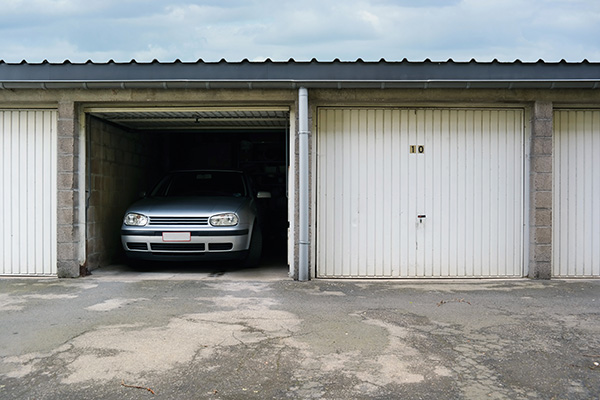
Whether you’re planning an extended vacation, have a seasonal vehicle, or just need to store your car for an extended period, it’s important to take the right steps to keep your vehicle in good condition. Without the proper preparation, a car sitting idle for months can face a number of issues, from a drained battery to corrosion. So, how do you ensure your car is safe and ready to go when you need it? Let’s go over some of the best practices for long-term car storage so your vehicle remains in tip-top shape even when it’s not in use. Clean Your Car Inside and Out Before putting your car into storage, giving it a thorough cleaning might not seem essential, but it can prevent several long-term issues. Dirt, bird droppings, or tree sap left on the paint can cause damage over time, leading to stains or even rust. Similarly, any food crumbs or trash left inside the car could attract pests, which is the last thing you want when your car is sitting ... read more
Posted on 8/27/2024
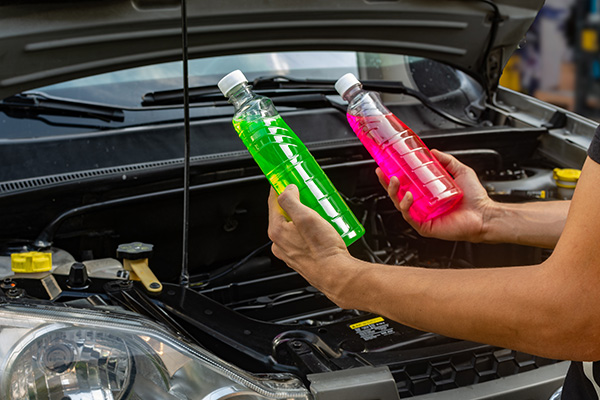
Ever been in a situation where you’ve run out of windshield washer fluid and wondered if plain water could do the trick? It’s a common question many drivers ask when the washer fluid runs low, and the convenience of using water seems like an easy, quick fix. But is it really a good idea? What Does Washer Fluid Actually Do? First, let’s talk about what washer fluid is designed to do. Washer fluid isn’t just there to clean your windshield; it serves several important purposes that keep your driving experience safe and your car in good shape. Cleanliness and Visibility Washer fluid is formulated to remove dirt, grime, bird droppings, bugs, and even road salt from your windshield. It contains chemicals designed to break down these tough substances, giving you a clearer view when driving. Water, on the other hand, lacks this cleaning po ... read more
Posted on 7/29/2024
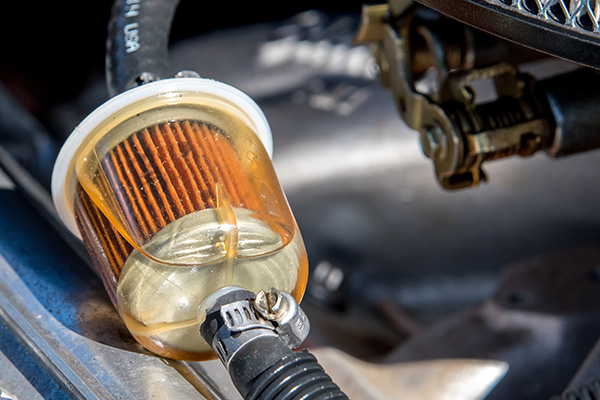
Your car's fuel filter is like the gatekeeper to your engine, ensuring only clean fuel makes its way into the combustion chambers. Over time, however, this essential component can become clogged with debris and contaminants, leading to various performance issues. If you've ever wondered about the signs that indicate your fuel filter might be clogged, you're in the right place. We will share the symptoms and why addressing them promptly is important. 1. Difficulty Starting Your Engine One of the first signs of a clogged fuel filter is difficulty starting your engine. When the fuel filter is blocked, it restricts the amount of fuel that reaches the engine. This can make it hard for the engine to start, particularly after the car has been sitting for a while. If you find yourself cranking the engine multiple times before it starts, a clogged fuel filter coul ... read more
Posted on 6/28/2024
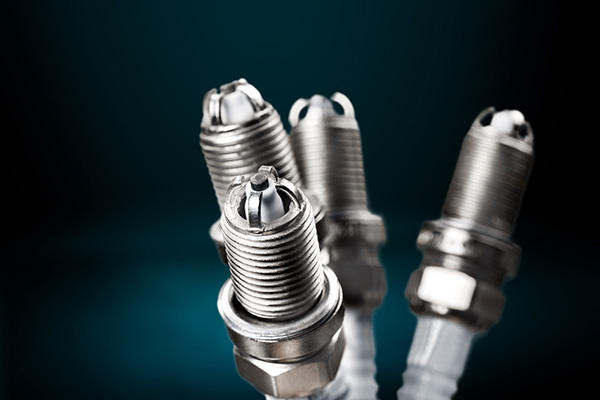
Have you ever found yourself staring blankly at the automotive aisle, wondering what on earth is the difference between iridium and copper spark plugs? Choosing the right spark plug can feel like deciphering a foreign language, but it's important for your car's performance. So, let's break it down in a way that's easy to understand and helps you make an informed choice. Spark Plugs Spark plugs are the tiny but mighty components that keep your engine running smoothly. They ignite the air-fuel mixture in your engine's combustion chamber, creating the explosion that powers your car. Without a good spark plug, your engine would misfire, stall, or not start at all. But not all spark plugs are created equal. The two main contenders in the market are iridium and copper spark plugs. Iridium Spark Plugs Iridium spark plugs are like the luxury sports cars of the spark plug world. They come with a higher price tag but offer superior perfor ... read more